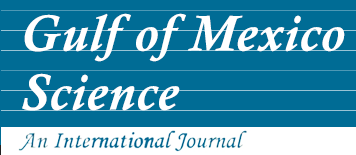Alternate Title
Metabolism, Consumption Rates, and Scope for Growth of Porcelain Crab (Petrolisthes galathinus)
Abstract
Porcelain crabs Petrolisthes galathinus (Bosc, 1802) can be found at high densities in oyster reefs. To examine effects of diet on metabolism, crabs (N = 32) were fed Artemia salina nauplii, mixed microalgae, or algal biofilm extract, or left unfed. Oxygen consumption, ammonia excretion, food consumption rate, and absorption efficiency were determined and scope for growth (SFG) was calculated. Oxygen consumption and food consumption rates were highest in crabs fed Artemia. The energy gained from mixed microalgae (47 ± 143 J h-1) and algal biofilm (265 ± 203 J h-1) was less than the energy gained from Artemia (9,963 ± 658 J h-1). Energy expenditures (oxygen consumption and ammonia excretion) suggest that P. galathinus has a low cost of routine metabolism and is able to consume a broad range of food resources including microalgae, benthic algae, and zooplankton. Consumption rates and SFG suggest that zooplankton, when present, are an important and valuable food source for porcelain crabs.
Recommended Citation
McGlaun, K. A. and K. Withers.
2012.
Metabolism, Consumption Rates, and Scope for Growth of Porcelain Crab (Petrolisthes galathinus).
Gulf of Mexico Science
30
(1).
Retrieved from https://aquila.usm.edu/goms/vol30/iss1/1

